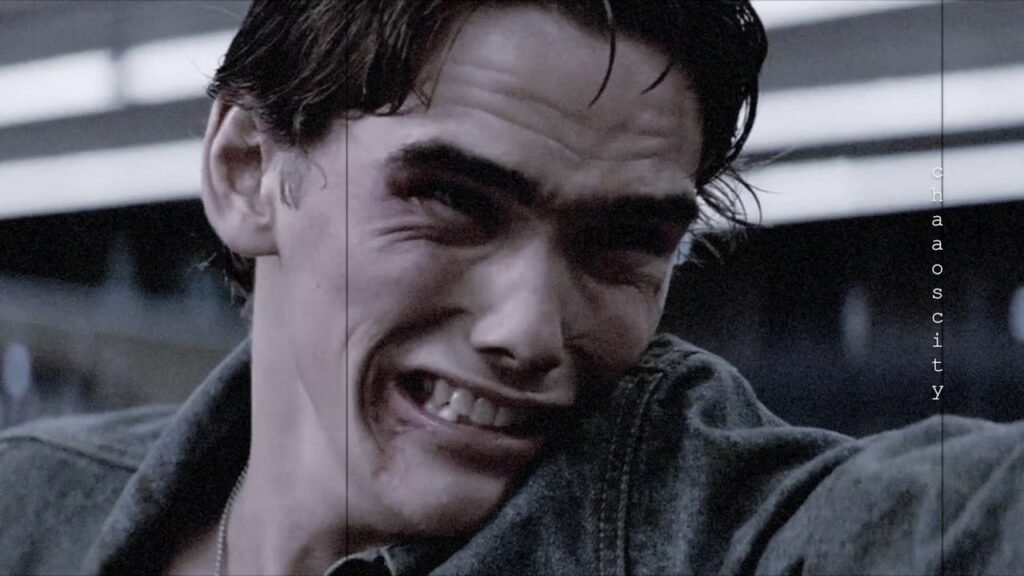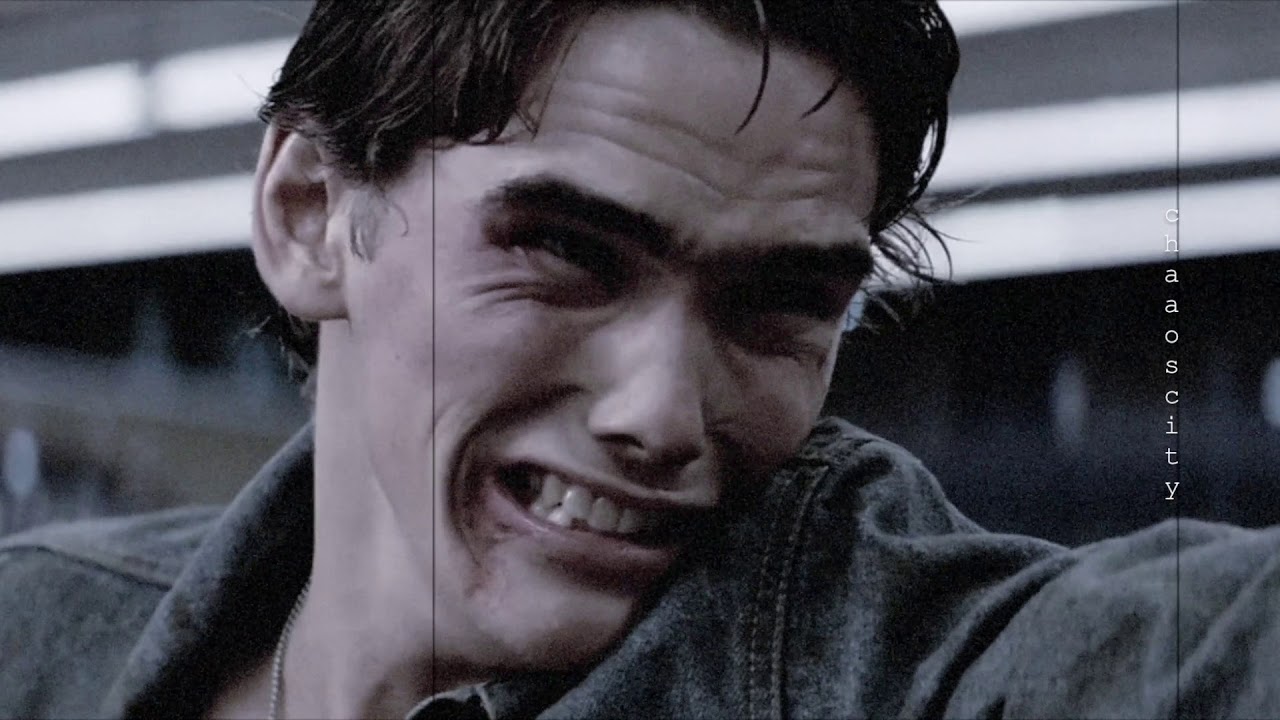
Exploring Dallas Winston’s Core Beliefs and Values: A Deep Dive
Dallas “Dally” Winston, a central figure in S.E. Hinton’s *The Outsiders*, is more than just a delinquent. Understanding Dallas Winston beliefs and values is crucial to grasping the novel’s themes of social class, identity, and the search for belonging. This article delves into the complex moral compass of Dally, examining the experiences and relationships that shaped his worldview.
Dally’s Background and its Influence
To truly understand Dallas Winston’s beliefs and values, it’s essential to consider his formative years. Dally’s childhood was marked by neglect, abuse, and a constant struggle for survival. Growing up on the streets of New York City, he learned to rely on his wits and develop a tough exterior as a defense mechanism. This harsh environment fostered a sense of cynicism and distrust towards authority figures and societal norms. The absence of positive role models and consistent support systems significantly impacted his moral development. He witnessed firsthand the brutality and injustice of the world, leading him to believe that only the strong survive and that vulnerability is a weakness.
This upbringing instilled in Dally a deep-seated skepticism and a tendency to act impulsively. He learned to navigate life through street smarts and a willingness to break the rules. His experiences shaped his perception of the world, fueling his rebellious nature and his reluctance to conform to societal expectations. The lack of stability and affection in his early life created a void that he attempted to fill through loyalty to his gang, the Greasers. His bond with Johnny Cade, in particular, highlights the yearning for connection and acceptance that lay beneath his hardened exterior.
Loyalty as a Core Value
Despite his seemingly callous demeanor, loyalty is arguably the most significant of Dallas Winston beliefs and values. He is fiercely protective of his friends, particularly Johnny Cade. This loyalty stems from a deep-seated need for connection and a desperate attempt to create a surrogate family. Dally’s unwavering support for Johnny showcases a side of him that is often hidden beneath his tough exterior. He is willing to risk his own safety and well-being to protect those he cares about, even if it means breaking the law. This loyalty is often expressed through acts of defiance and rebellion, demonstrating his willingness to stand up for his friends against the injustices they face.
Dally’s loyalty extends beyond Johnny to the other members of the Greasers. He sees them as his brothers, bound together by their shared experiences and their outsider status. He is always ready to defend them, whether it’s in a rumble against the Socs or in providing a safe haven when they are in trouble. This sense of camaraderie is a crucial aspect of Dally’s identity and provides him with a sense of belonging that he lacks elsewhere in his life. His loyalty to the Greasers is not just a matter of convenience; it is a deeply ingrained value that defines his character and motivates his actions.
Distrust of Authority and Societal Norms
Dally’s experiences with law enforcement and the social system have fostered a profound distrust of authority. He views the police and other institutions as inherently biased against the Greasers, reinforcing his belief that they are constantly being targeted and unfairly judged. This distrust is further fueled by his own personal encounters with the justice system, which have left him feeling alienated and misunderstood. As such, questioning Dallas Winston beliefs and values requires understanding his perspective on societal structures.
This distrust translates into a blatant disregard for societal norms and rules. Dally frequently engages in illegal activities, not necessarily out of malice, but as a way of asserting his independence and defying a system that he believes is rigged against him. He sees the rules as arbitrary and unjust, designed to keep the Greasers down and maintain the status quo. His rebellious behavior is a form of resistance, a way of challenging the authority that he perceives as oppressive. This defiance is not just about breaking the law; it is about asserting his identity and refusing to be defined by the expectations of a society that has marginalized him.
The Desire for Belonging and Acceptance
Beneath his hardened exterior, Dally yearns for belonging and acceptance. He craves connection and seeks to find a place where he feels valued and understood. This desire is evident in his deep affection for Johnny, whom he sees as a kindred spirit. Dally’s relationship with Johnny is one of the few genuine connections he has in his life, and he is fiercely protective of him. He sees Johnny as innocent and vulnerable, and he is determined to shield him from the harsh realities of the world. This protective instinct stems from his own experiences of being vulnerable and alone, and he is determined to prevent Johnny from suffering the same fate.
Dally’s desire for belonging also extends to the other members of the Greasers. He sees them as his family, bound together by their shared experiences and their outsider status. He is always ready to defend them, whether it’s in a rumble against the Socs or in providing a safe haven when they are in trouble. This sense of camaraderie is a crucial aspect of Dally’s identity and provides him with a sense of belonging that he lacks elsewhere in his life. His loyalty to the Greasers is not just a matter of convenience; it is a deeply ingrained value that defines his character and motivates his actions. Exploring Dallas Winston beliefs and values reveals this underlying need for connection.
The Impact of Johnny’s Death
Johnny’s death profoundly impacts Dally, shattering his already fragile worldview. Johnny represented innocence and hope in a world that Dally had come to see as devoid of both. With Johnny gone, Dally loses his anchor and his reason for trying to navigate the world. The death of Johnny serves as a catalyst for Dally’s descent into despair and ultimately leads to his own self-destruction. He cannot cope with the loss of the one person who truly understood him, and he sees no point in continuing to live in a world without Johnny.
Dally’s reaction to Johnny’s death highlights the depth of his emotional vulnerability, which he typically keeps hidden beneath his tough exterior. He is unable to process his grief in a healthy way, and he resorts to reckless behavior and self-destructive actions. His decision to rob a store and provoke the police is a desperate attempt to escape the pain of his loss. He is essentially seeking a way to end his own life, unable to bear the thought of living without Johnny. This tragic outcome underscores the devastating impact of trauma and the importance of providing support and understanding to those who are struggling with grief and loss. Understanding Dallas Winston beliefs and values requires acknowledging the pivotal role of Johnny in his life.
Dally’s Tragic End and its Significance
Dally’s deliberate act of provoking the police and ultimately being shot and killed is a tragic culmination of his life experiences. It highlights the destructive consequences of a life marked by trauma, neglect, and a lack of positive support. Dally’s death serves as a cautionary tale about the importance of addressing the root causes of delinquency and providing vulnerable individuals with the resources they need to overcome adversity. His tragic end underscores the need for compassion, understanding, and effective interventions to prevent similar outcomes for other young people who are struggling with similar challenges. The way he chose to die reveals much about Dallas Winston beliefs and values.
His death also forces the other characters in the novel, particularly Ponyboy, to confront the complexities of Dally’s character and to question their own assumptions about him. Ponyboy initially sees Dally as a hardened criminal, but through his experiences and reflections, he comes to understand the underlying pain and vulnerability that drove Dally’s actions. Dally’s death ultimately serves as a catalyst for Ponyboy’s growth and maturity, prompting him to see the world in a more nuanced and compassionate way. It encourages him to challenge stereotypes and to recognize the humanity in everyone, even those who seem the most hardened and unapproachable.
Conclusion: Dally Winston’s Enduring Legacy
Dallas Winston beliefs and values, though often expressed through destructive behavior, reveal a complex and ultimately tragic character. His loyalty, distrust of authority, and yearning for belonging are all products of his difficult upbringing and the harsh realities of his environment. While his actions are often misguided and harmful, they are rooted in a deep-seated need for connection and a desperate attempt to find meaning and purpose in a world that has repeatedly failed him. Dally’s story serves as a powerful reminder of the importance of empathy, understanding, and the need to address the root causes of social inequality and juvenile delinquency. His character continues to resonate with readers because he embodies the struggles of marginalized youth and the enduring human desire for love, acceptance, and belonging. Dally’s legacy lies not just in his rebellious spirit but also in the questions he raises about the nature of good and evil, the impact of social forces, and the importance of offering compassion and support to those who are most vulnerable. His story continues to provoke reflection and inspire action, reminding us that even the most hardened individuals are capable of change and that every life has value.
Understanding Dallas Winston’s beliefs and values provides a deeper appreciation for the nuances of S.E. Hinton’s *The Outsiders* and its enduring message about the importance of empathy and understanding across social divides. [See also: The Social Commentary in The Outsiders] [See also: The Symbolism of Greasers and Socs] [See also: Ponyboy’s Journey of Self-Discovery]

